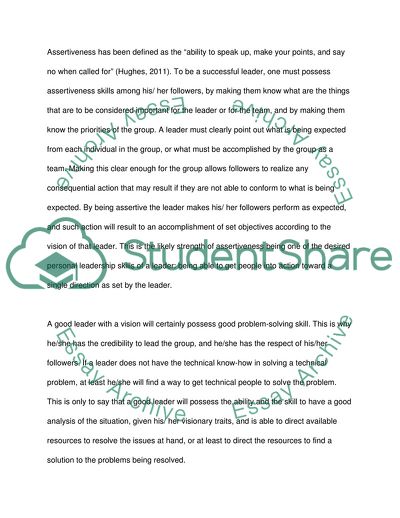Personal Leadership Skills Coursework Example | Topics and Well Written Essays - 1000 words. https://studentshare.org/human-resources/1770653-leadership-management-3
Personal Leadership Skills Coursework Example | Topics and Well Written Essays - 1000 Words. https://studentshare.org/human-resources/1770653-leadership-management-3.


